ARTICLE AD BOX
Stuart Woodward
BBC News, Essex
Reporting fromLampard Inquiry

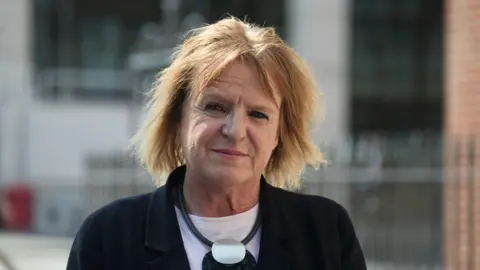 Jamie Niblock/BBC
Jamie Niblock/BBC
Deborah Coles said the behaviour of some NHS trusts at inquests was "reprehensible"
Health trusts have repeatedly tried to prevent coroners from issuing Prevention of Future Death reports in order to protect their reputations, an inquiry has heard.
Deborah Coles, director of the charity Inquest, told the BBC the "reprehensible" behaviour was a pattern "played out across the country" but was "exemplified" in Essex.
She gave evidence at the Lampard Inquiry, which is looking into the deaths of more than 2,000 people being treated by NHS mental health services in Essex between 2000 and 2023.
Essex Partnership University NHS Foundation Trust (EPUT) has apologised to those affected.
'Angry and frustrated'
In her evidence to the inquiry, Ms Coles said the "lack of candour" on the part of mental health trusts in Essex was the reason a statutory public inquiry needed to be held.
"It's difficult to say how traumatising that is for families when they sit in at an inquest… and then see legal representatives try and effectively stop a coroner from making a Prevention of Future Deaths report, which is ultimately about trying to safeguard lives in the future - and I find that reprehensible," she said.
"We are talking here about trying to protect lives and also remember those who've died where those deaths were preventable."

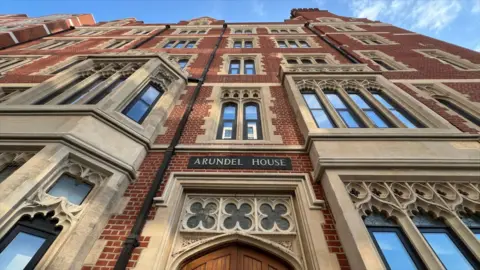 Stuart Woodward/BBC
Stuart Woodward/BBC
The Lampard Inquiry is hearing evidence at Arundel House in London across several sessions in 2025 and 2026
Speaking to the BBC after giving evidence, Ms Coles said NHS trusts were more concerned about reputational damage than learning lessons.
"This goes to the heart of what I was talking about [in the inquiry]... the fact that trusts are more concerned with protecting their reputations than acknowledging the failings in their systems and processes and trying to do something meaningful about it," she said.
Ms Coles added that she was also angry and frustrated at a lack of political will from successive governments "to ensure the change that is needed… to try and stop the appalling culture of defensiveness that we see from NHS trusts, exemplified by Essex".
"NHS trusts try and argue with coroners that they've already implemented changes and that a report is not necessary," she said, adding that it undermined potential for local and national learning.
"We need to be able to ensure that we're not talking about cut-and-paste action plans, but we can demonstrate that action has been taken and that recommendations are implemented."
A Department of Health and Social Care spokesperson said: "It's crucial that every person affected by this ordeal has a right to tell their story.
"The inquiry has heard testimonies from many families, and we are confident that the inquiry will provide a valuable channel for them to have their voices heard."

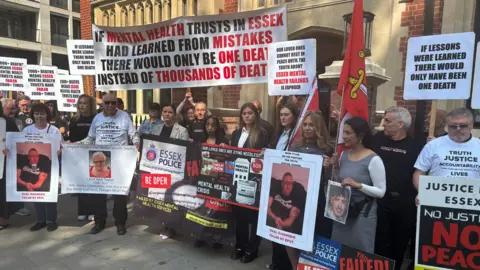 PA Media
PA Media
Bereaved families were praised by Ms Coles for their "incredible strength, courage and determination"
The public inquiry is England's first into mental health deaths, with evidence being heard in London after sessions in September and November.
Evidence will continue to be heard throughout 2025 and 2026, with Baroness Lampard's report due to be issued in 2027.
EPUT chief executive Paul Scott has apologised for deaths under his trust's care.
He said: "As the inquiry progresses, there will be many accounts of people who were much loved and missed over the past 24 years and I want to say how sorry I am for their loss."

 3 weeks ago
16
3 weeks ago
16
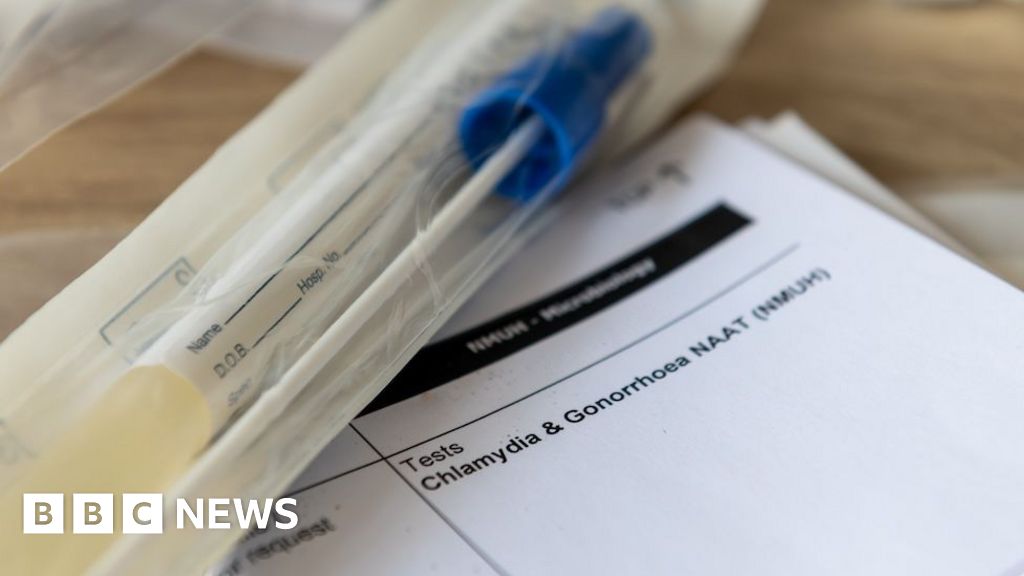
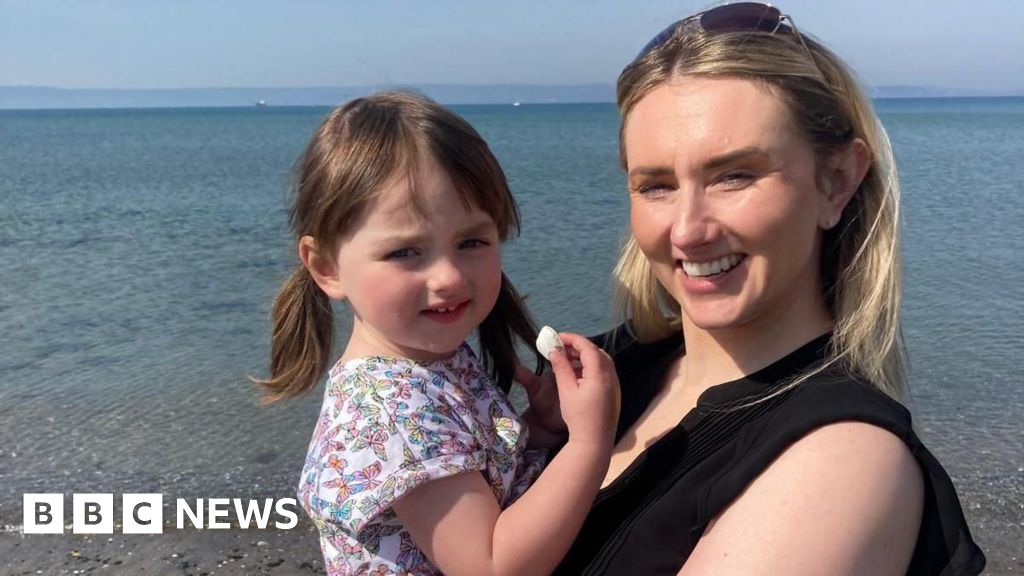
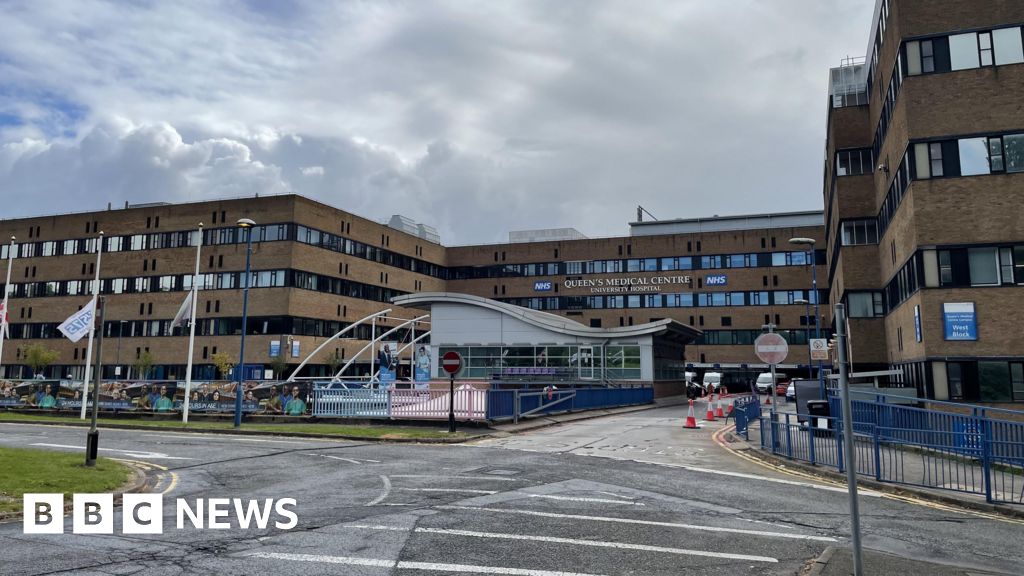





 English (US) ·
English (US) ·